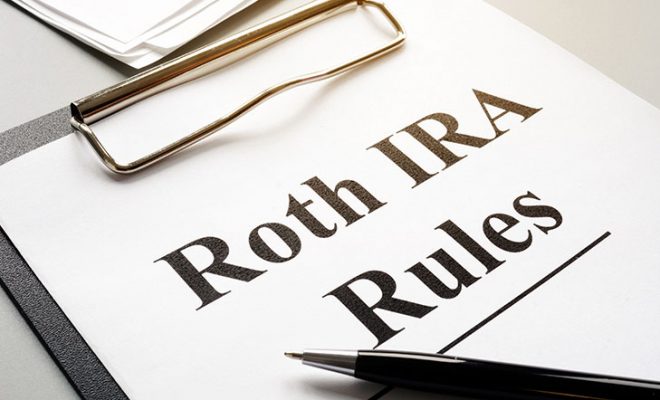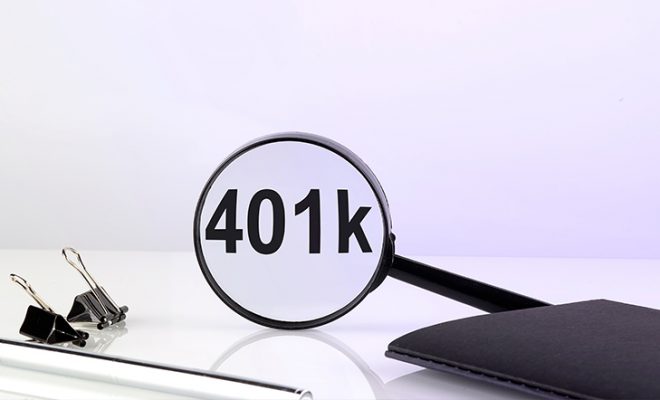Tips for Managing Cash Flow in Retirement

There are two phases of retirement planning. The first involves the preparation for retirement. This includes setting a budget for savings, investing the money you save, allocating your money to different assets in tandem with your risk appetite, and using different strategies to build wealth. The second phase comes after retirement. During this phase, you require a solid approach to withdrawing your retirement income, creating a budget for your monthly expenses, ensuring you do not run out of money, and more.
While most people concentrate on the first phase, the second phase is equally important. There is a lot of information on how you can build a retirement corpus. However, if you are not able to use it properly, you risk losing everything you worked so hard to make. Being financially unstable in retirement can be the hardest as you have very few prospects to earn money. Considering the fact that an average retirement can last at least 20 to 30 years, it is crucial to plan the use of your money and spend it optimally not to run out of it. Therefore, you must understand your cash flow in retirement and take measures to ensure that you use your money prudently. If you wish to learn about how to manage and optimize your cash flow in retirement, consult with a professional financial advisor who can advise you on the same.
How to create cash flows in retirement
To understand cash flow management in retirement, you first need to understand the 4 pillars of cash flow in retirement. As long as you recognize their relevance in your retirement fund, you are never likely to run out of money.
Pillar 1: Debt management
One of the essential things in retirement is not to have debt. If you have any mortgage payments, it may be advised to get entirely debt-free before you retire. If you carry debt into retirement, you risk hampering your limited pool of savings. Debt interest, especially on home loans, can be relatively high. This can be detrimental to your long-term financial health. In addition to this, retirees must also try to avoid the use of credit cards or at least use it responsibly. Credit cards can offer many advantages, but at the same time, they are also very risky. The interest rate and the never-ending cycle of debt can be a significant financial concern if you are not able to handle things optimally.
Pillar 2: Liquidity
You may have a lot of retirement income in accounts like the 401k, an Individual Retirement Account (IRA), bonds, stocks, mutual funds, etc. However, the liquidity of each of these accounts is a significant consideration. It is essential to understand the withdrawal limits and limitations of your investments and plan your retirement accordingly. For instance, if you retire at the age of 55, you would not be able to make a penalty-free withdrawal from your 401k or IRA until the age of 59.5. Any withdrawal before this would levy a penalty of 10%. Likewise, the Internal Revenue Services (IRS) will levy a 10% penalty on all your withdrawals if you have not held your account for at least five years. Now, most retirees have had 401ks and IRAs for more than five years. However, if you recently converted from a traditional to a Roth IRA, the penalty would be levied if the withdrawal is made in less than five years from the date of conversion. It is important to have liquid cash in retirement or at least access to money. Ideally, it may be advised to have at least one year’s worth of expenses readily available or accessible in retirement to live a comfortable life.
Pillar 3: Emergency fund
Emergencies can strike anytime and anywhere. You can have an unexpected health expense, your house may need a repair, a child may lose money and require help, etc. No matter the need, having an emergency fund is essential. It can help you in a crisis. It also adds a lot of confidence and peace of mind. Moreover, it removes the need to take on debt, thereby strengthening more than one pillar at a time.
Pillar 4: Steady withdrawal rate
A steady withdrawal is essential to ensure that you do not outlive your savings. Additionally, it also provides that you do not live frugally when you have no reason to. Ideally, experts recommend having a 4% withdrawal rate. This rule allows you to withdraw 4% of your total income in the first year. In subsequent years, you can add the prevailing inflation rate and manage your withdrawals accordingly. Although you do not necessarily have to follow the 4% rule, you can choose it if it fits your needs. If not, you can devise any other withdrawal strategy that you like, as long as you are able to maintain a steady rate.
SPONSORED WISERADVISOR

Need a financial advisor? Compare vetted advisors matched to your specific requirements.
Choosing the right financial advisor is daunting, especially when there are thousands of financial advisors near you. We make it easy by matching you to vetted advisors that meet your unique needs. Matched advisors are all registered with FINRA/SEC. Click to compare vetted advisors now.
How to manage cash flow in retirement
Now that you know the four pillars of cash flow, you can proceed to managing cash flow in retirement with the following tips:
1. Understand the duration of your retirement:
Everyone’s retirement may vary based on the age of retirement and life expectancy. If you plan an early retirement in your 40s, your retirement can last for 40 years or more if you live on to your 80s. However, if you retire at the age of 65 and live till the age of 85, your retirement would last 20 years. Now, while you may be able to plan the age at which you retire, it can be impossible to predict the age you will live up to. However, some factors like your family history, health history, current health, lifestyle, etc., can give you a glimpse into your future. If you lead a healthy lifestyle and your parents and grandparents lived a long and healthy life, you would also likely live a long life. However, if you have had health issues in the past and your previous generations suffered from similar problems, you can take these factors into consideration and plan your retirement accordingly. No matter what you preempt, the vital thing to note in retirement planning is to add at least five years to your estimate. So, for instance, if your parents and grandparents lived till the age of 85, you can add another five and plan for a retirement that will last till the age of 90. This adds a safety net to your savings and helps you manage your cash flow in retirement. If you outlive 85, you will have a safety net to rely on. If you do not, you will still have some extra funds at your disposal.
2. Be realistic:
A major mistake that a lot of retirees make is thinking they have enough to last them a lifetime. While you may retire with a seemingly large retirement corpus, it is crucial to understand what this corpus can be reduced to in the face of life’s many needs. Many people spend a large part of their retirement savings in the initial years of their retirement. This can be a grave mistake, leaving you with very little money in the end. As mentioned above, retirement can last 20 to 30 years and probably more. There are a number of things that can go wrong during this time. You could have financial emergencies, you may travel extensively, the inflation rate can skyrocket, the stock market could crash, etc. Therefore, you need to be prepared for all of these eventualities and more. When spending money, try to be realistic. You may be tempted to spend but holding onto the urge is essential. The idea is not to live below your means or not to enjoy life but to adopt a more responsible approach to living and spending.
3. Pay attention to tax:
Tax is one of the inevitable expenses you are likely to encounter in retirement. Your capital gains from mutual funds, profits from stocks, and withdrawals from a 401k or IRA are all likely to be taxed according to your income tax slab. In addition to this, you may pay property tax, estate tax, inheritance tax, etc., as and when required. While it is not possible to evade tax, you can do some things to lower your taxability. One measure can be to convert from a traditional to a Roth 401k or IRA. Traditional accounts are funded from your pre-tax dollars and taxed in retirement when you draw your money. On the other hand, Roth accounts are funded from your after-tax dollars and are, therefore, tax-exempt in retirement. Additionally, you could consider living in a tax-friendly state. A financial advisor can also help you plan your taxes in retirement more efficiently.
4. Plan your expenses:
Just as you did before, it is also vital to plan major expenses in retirement. Some costs are not recurring in nature. For instance, you may not often travel to the other end of the globe. Likewise, you may not buy a car every other year. These expenses are few and far. So, it is essential to plan for them. You can do so by looking for good deals and discounts that help you save money. Alternatively, you can cut back on other expenditures for a few months to accommodate a big expenditure. It is also important to plan big expenses when inflation is low. So, if something is not pressing or urgent, you can hold on until the economy stabilizes.
5. Keep an investment budget:
Investment is one of the most critical aspects of cash flow in retirement. It is crucial to keep investing your money even after you retire. Your risk appetite will lower in retirement, so you should pick relatively low-risk investments. This can help you grow your wealth while keeping risks in check. Inflation is continually on the rise. So, it is vital to ensure that your retirement fund grows with it too. Otherwise, your money will start losing its value with time.
To conclude
Managing cash flow in retirement is critical to ensure that you live a comfortable and financially stable life. It can help you manage your money more efficiently and make sure that you are able to live a life without financial stress. Paying attention to your cash flow strategies also ensures that you are in control of your money and not the other way around.
Moreover, if you face any challenges and need a professional perspective on the matter, you can also consider hiring a financial advisor for guidance and assistance. Use the free advisor match service to connect with 1-3 financial advisors based on your financial requirements. All you need to do is answer a few simple questions about yourself and the match tool will find advisors that match your financial needs.
For further information on creating a suitable retirement plan for your unique financial requirements, visit Dash Investments or email me directly at dash@dashinvestments.com.
About Dash Investments
Dash Investments is privately owned by Jonathan Dash and is an independent investment advisory firm, managing private client accounts for individuals and families across America. As a Registered Investment Advisor (RIA) firm with the SEC, they are fiduciaries who put clients’ interests ahead of everything else.
Dash Investments offers a full range of investment advisory and financial services, which are tailored to each client’s unique needs providing institutional-caliber money management services that are based upon a solid, proven research approach. Additionally, each client receives comprehensive financial planning to ensure they are moving toward their financial goals.
CEO & Chief Investment Officer Jonathan Dash has been covered in major business publications such as Barron’s, The Wall Street Journal, and The New York Times as a leader in the investment industry with a track record of creating value for his firm’s clients.










